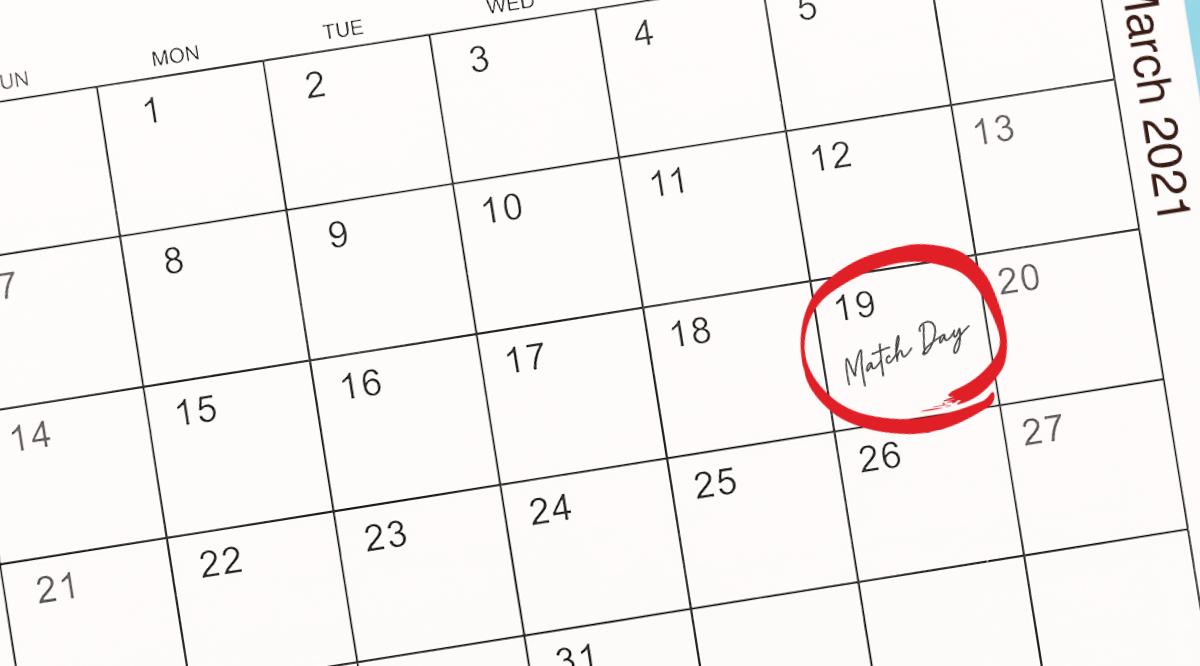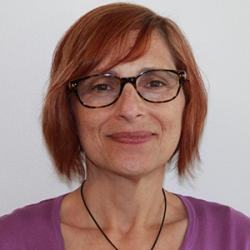The big day is almost here. On March 15, tens of thousands of medical students will learn whether they’ve nabbed medicine’s brass ring: a spot in a residency training program. Without one, they can’t go on to become a licensed physician in the United States.
Historically, most students have reason to celebrate when the results of the National Residency Matching Program® (NRMP®) roll in. Last year, 94% of U.S. MD seniors landed a slot on Monday of Match Week, and 91% of U.S. DO seniors did so.
But for a subset of applicants, Match Week involves an intensely challenging experience: the NRMP®’s Supplemental Offer and Acceptance Program®. Known as SOAP®, it’s a rapid-fire application process designed to give unmatched candidates and unfilled programs another chance at connecting.
“When students find out they didn’t match, they can be in complete shock. Some cry. Some are in denial. Some are angry,” says Georgette Dent, MD, associate dean for student affairs at the University of North Carolina at Chapel Hill School of Medicine. “But once they calm down, SOAP® can be a great opportunity.”
Every year, the weeks leading up to the Match® are an intense time for residency hopefuls. That’s when they need to rank-order the programs where they hope to train over the next three to seven years.
But 2020 and 2021 have been especially tough as the pandemic upended much of the residency application process.
“Every medical student thinks about the Match® from the time they start school — and I don't think anybody imagined that it would go down as it has this year,” says Kevin Milligan, a fourth-year student at the University of Cincinnati College of Medicine. “You take this already intense process and you introduce new variables, and you just wind up with heightened stress.”
Those variables are numerous, experts say. COVID-19 shut down away rotations, weekslong stints at programs that often serve as residency auditions. Interviews moved online. And because travel was no longer necessary, competitive students accepted invitations to interview at many more programs than in prior years. That has led less-competitive but still-solid candidates to worry that the Match® won’t go well for them since programs may pursue the same top-tier candidates.
“Every medical student thinks about the Match® from the time they start school — and I don't think anybody imagined that it would go down as it has this year.”
Kevin Milligan
Student at the University of Cincinnati College of Medicine
Meanwhile, medical schools are working hard to help by providing emotional support and concrete guidance on how to handle what lies ahead. The hope is that the process ends happily for as many applicants as possible on Match Day, but the truth is that no one can predict what Match Week will look like this year.
“We really have no way of knowing what’s going to happen,” says Amy Addams, AAMC director of student affairs alignment and holistic review. “This could go many different ways, ranging from not that different than in previous years to pretty tough. And that’s a lot of uncertainty for people after a whole year of a lot of uncertainty.”
Why does SOAP® have students in a lather?
Applying for a residency is a bit like competing in a marathon. It requires intense preparation and determination. And COVID-19 has only ramped up the potential obstacles.
This year, the application season launched on Sept. 1, when candidates began uploading materials into the AAMC’s Electronic Residency Application Service® (ERAS®). Programs generally started selecting interviewees in October. Online interviews, virtual program tours, and other remote opportunities to connect spanned several months.
On March 3, applicants and programs submitted their lists of preferences — known as rank order lists — to the NRMP®. Then, a sophisticated algorithm began churning through the lists, creating pairs based on how high applicants and programs ranked each other.
At 11 a.m. ET on March 15, candidates learn if they matched.
Most will get good news. In 2020, for example, the vast majority of U.S. MD and DO seniors landed a slot in the Match®. Graduates of foreign medical schools — some of whom are U.S. citizens or permanent residents — matched at significantly lower rates, though. When looking at the whole pool, the overall match rate was 81% last year.
“Students feel lost on Monday morning. And in just an hour, they have to start getting those SOAP® applications in.”
Christopher Steffes, MD
Assistant dean of clinical medical education at Wayne State University School of Medicine
SOAP® helps those who don’t match connect with unfilled programs, but it moves at lightning speed. At 11 a.m. ET on March 15, eligible applicants can access the NRMP®’s list of unfilled programs and pick 45 of them. At noon, they can jump onto the ERAS platform and begin uploading new letters of recommendation and other materials to bolster their applications.
“Students feel lost on Monday morning,” says Christopher Steffes, MD, assistant dean of clinical medical education at Wayne State University (WSU) School of Medicine in Detroit. “And in just an hour, they have to start getting those SOAP® applications in.”
A few hours after hitting “send” in the ERAS platform, SOAP® applicants will need to be ready for interviews. Then, programs make offers in four rapid rounds on Wednesday and Thursday — and candidates get two hours to decide whether they’ll accept.
This year, SOAP® may be even more tense than usual, experts say. As of March 1, there were more than 47,000 registrants and 38,197 spots, according to NRMP® President and CEO Donna Lamb, DHSc, MBA. Last year, there were 44,959 registrants and 37,256 spots.
Lamb hopes that the fourth SOAP® round — which the NRMP® added this year — will help both applicants and programs. And there could be additional changes going forward.
“We’re looking at all of NRMP®’s processes and policies to make sure we’re achieving our mission — an equitable, efficient, and transparent Match®,” says Lamb. “When we find something that helps reduce stress and increase efficiency without adversely affecting applicants, we’re likely to try it out.”
Students and schools gear up
Many students and schools are hard at work cranking out plans for how to handle Match Week.
Some applicants who think they may need to rely on SOAP® are drafting new personal essays. Others are requesting additional letters of recommendation. Some are exploring preliminary programs, which means they'd spend a year getting additional training before reapplying. And many are mapping out what they’ll do come Monday morning.
“I’m going to take a long, relaxing bike ride in the morning,” says Milligan. “Once the Match® email comes, if I need to SOAP®, I’ll start researching programs with openings as quickly as possible, and I’ll make calls to mentors. I’ll also get over to my school’s auditorium since they’ll be setting up there to help people.”
For some of this year’s applicants, preparing to possibly enter SOAP® entails complex calculations.
Monica Mansour’s strategy involves possibly switching from her previous choices — pediatrics and family medicine — to a different residency — maybe gynecology — to boost her odds of landing a spot where she wants to train. The WSU student says she’s committed to moving from Detroit to Arizona to be near her husband of two years. “I want to serve my patients well, and I can’t do that without my support system.”
Brittanie Hazzard Bigby is taking a different tack. She wants to study obstetrics when she graduates from the University of Medicine and Health Sciences in St. Kitts (which is not accredited by the Liaison Committee on Medical Education like domestic MD-granting schools). “I’m creating a spreadsheet with possible programs. I’m researching their values, culture, and other issues I care about. That way, if I don’t match, I’ll just have to check which programs have openings,” she says. “It should make things much less stressful. All I’ll have to do is press submit.”
On their end, many schools are reaching out to students they wouldn’t have contacted in the past. “Usually we just work with students we consider at risk for not matching. Now that so many more are anxious, we’re hosting a SOAP® workshop for all of our seniors,” says Dent.
“This year, we’re encouraging students to select a SOAP® buddy — a trusted peer or partner — to help them. In addition to being incredibly stressful, going through SOAP® can be very isolating.”
Katherine Chretien, MD
Associate dean for student affairs at the George Washington University School of Medicine and Health Sciences
Leaders are sharing key words of wisdom. High on the list: Applicants who land a SOAP® offer should not hold out for “something better” because most slots get grabbed in Round 1.
Also highly recommended is lining up essential support for the big day.
“This year, we’re encouraging students to select a SOAP® buddy — a trusted peer or partner — to help them,” says Katherine Chretien, MD, associate dean for student affairs at the George Washington University School of Medicine and Health Sciences. “In addition to being incredibly stressful, going through SOAP® can be very isolating. We hope to ease the burden on anyone going through it by creating a strong network of support.”
Angela Jackson, MD, associate dean for student affairs at Boston University School of Medicine, focuses on trying to reassure students. “I know they’re going to end up in residency programs where they’ll become the physicians they want to be,” she says. “It’s just a shame that the way of getting there is unbelievably difficult.”
The pressure on programs
This year’s unusual Match® is no simple matter for residency leaders, either.
They’ve been struggling to choose well-suited candidates without input from in-person interviews. They’re also trying to ensure that applicants appreciate their programs without having ever seen them. And then there’s the big worry: possibly winding up with unfilled slots.
“Since some students interviewed at many more places, the concern is that several programs are all interviewing, and potentially ranking, the same applicants this year,” says Addams. “Obviously, applicants can only attend one program.”
That means some programs who haven’t needed SOAP® in the past are gearing up for it. Some are reaching out to SOAP® veterans for advice. Others are crafting logistics to enable rapid discussions about interested applicants.
“I’d be hard-pressed to remember the last time we needed to SOAP®,” explains Richard Church, MD, emergency medicine residency program director at the University of Massachusetts Medical Center. “This year, I’ll have two or three staff members ready.”
“I envision SOAP® could be a bit of a rat race for programs this year as more may need to use it,” he notes. “Programs could be more concerned than in the past that very accomplished candidates will get gobbled up quickly by other programs.”
Though the 2021 cycle has been stressful for all involved, it’s students who feel they have the most to lose come Match Week.
“This is not something any of us imagined for ourselves, but hopefully it will all work out in the end," says Milligan. “If SOAP® is the way students have to get to their goal, then that’s OK. My peers are amazing people, and they will become amazing doctors.”

